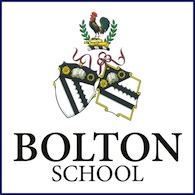Comment this year on exam results has focused on the reforms introduced by Michael Gove . But just what is worth thinking about and what is the noise of transient change?
At A level the reformed subjects have three real differences to those that went before. The first is that they are judged on exams at the end of the course, not from exams taken throughout the two years. The second is that this also removes the possibility of resits during the course. These structural change are likely to make things more challenging, especially not being able to try again on parts of the exam. It does not make the subject more difficult, it just changes how we measure the ability of students. The third change is that the subject content and questions are more challenging as well. Taken together this makes for more difficult exams. Assuming that we want results not to change radically and that students donÆt suddenly become cleverer or teachers more talented, this is likely to lead to lower grade boundaries û and this year it has. The exam system is a complex beast and changing something almost always compromises something else.
At GCSE again three things have occurred, for this year in just English and maths. First, numbers have replaced letters. Despite the hysteria in the press this is unlikely to cause long term confusion. The real issue is that making three grades (7, 8 and 9) where two were (A and A*) categorises results more finely. The consequence is that it means ever more pressure to attain the top grades (my generation thought we had done well to get the top grade, an A, and no further questions were asked of us). It also puts pressure on the exam system to mark to that high degree of accuracy to make those differences in marks real.á Second, there are structural changes, removing, in most cases, coursework and moving to end of course exams. And finally the content is more challenging.
Change is just that û usually neither good nor bad, just a different set of choices in the complex world of acknowledging the achievements of the pupils who have been working so hard for their results.

Leave a Reply